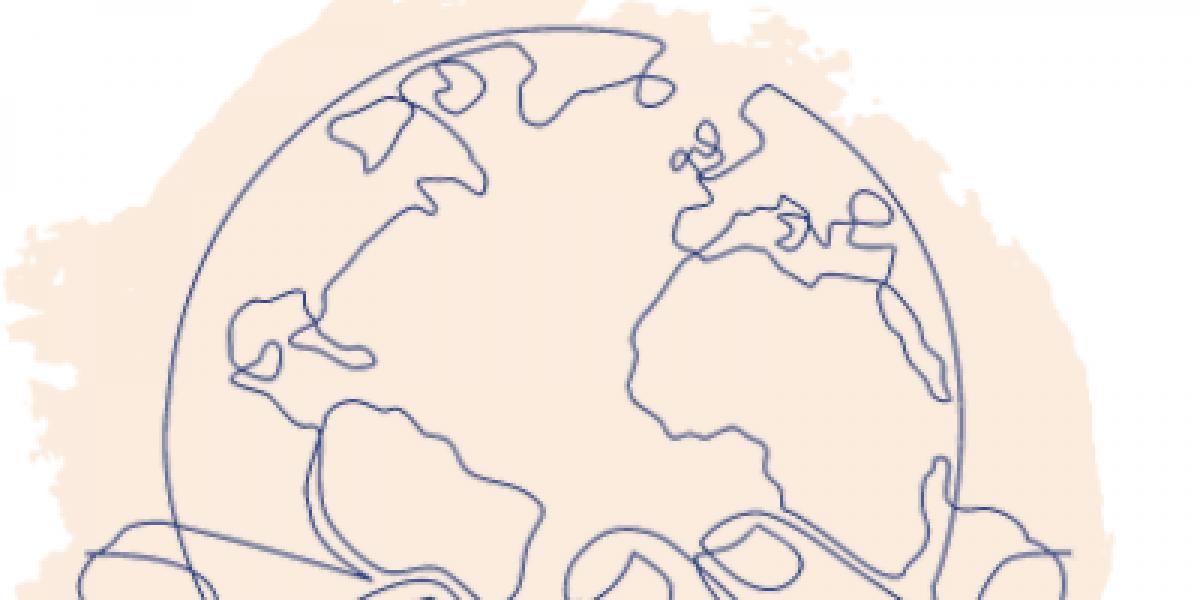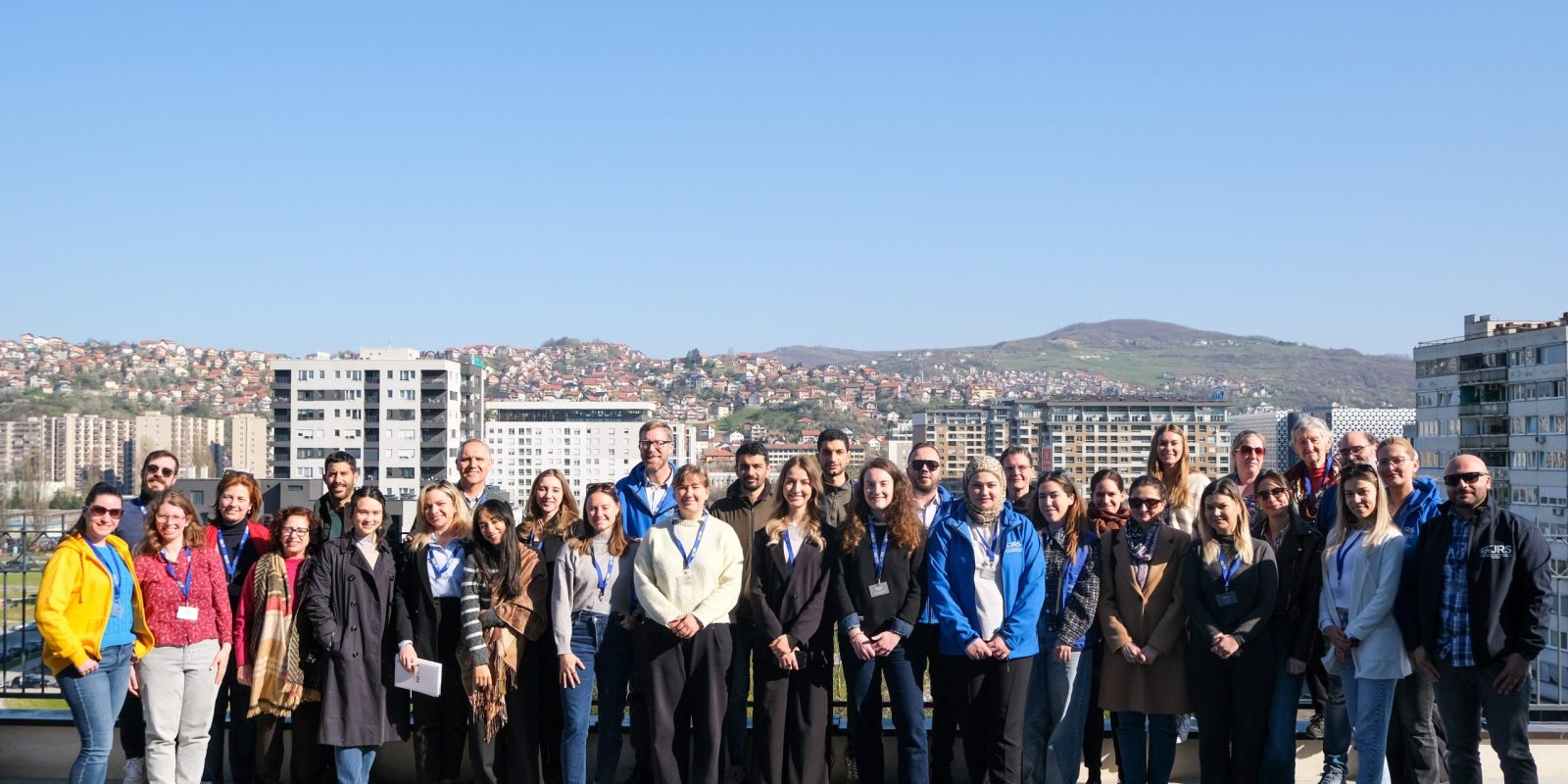The interconnection of climate change, injustice and forced displacement
16 November 2022|Dr Sophie Cartwright, JRS UK

As I write, world leaders are meeting in Egypt at COP 27, to plan an urgent global response to climate change. We must hope, pray, and insist that radical action is taken: Across the globe, the climate is changing, and earth is becoming less hospitable to human beings and all living creatures. We are seeing increased desertification, droughts, rising sea levels, and hurricanes. This is a global emergency.
This global emergency calls for a holistic response, having implications for virtually all areas of human life. Importantly, people are being forcibly displaced on a vast scale as a result of it. Estimates from environmental charities suggest the number is already around 40 million. Some ultimately cross borders, but the majority are internally displaced.
To give some examples, in 2020, Hurricane Eta devastated lives in Central America and southern Mexico. It impacted around 4 million people, forcing large numbers to abandon their homes and in many cases move north. In Bangladesh, rising sea levels force people to internally relocate, and mean that once arable land will no longer yield crops. These stories, and so many others, are catastrophes resulting from the destruction of creation in climate change. And climate change does not act in isolation here, but interacts with and is mutually compounding with other things that uproot and displace people from their homes.
For instance, environmental degradation destroys livelihoods. This itself often leaves people with no choice but to move. It can also create conflict, as people fight it out for scarce resources, and this conflict can in turn itself force people to move in search of physical safety. Profound scarcity also leaves people more vulnerable to exploitation and fuels conflicts. For example, in Afghanistan, years of drought and reduced harvest render people more vulnerable to recruitment by armed groups, as noted a few years ago by the UN Secretary General.
War, the devastation of local economies, the rise of oppressive politics, and climate change must be considered together. Environmental, social, political and economic factors cannot be isolated from each other. As Pope Francis says in Laudato Si:
“The human environment and the natural environment deteriorate together”.
A Holistic Solution
This demonstrates the need for a holistic solution. Crucially, we must face up to the gross global injustice at play here. Climate change is the consequence of human action. It comes from human choices, from patterns of human behaviour, and from the way that our societies are set up, it both partly results from and exacerbates global inequalities. It is disproportionately caused by the rich and suffered by the poor. Much of it is specifically caused by profiteering corporate enterprise. Tellingly, just 100 companies had been responsible for more than 70% of global greenhouse gas emissions between 1988 and 2017, according to a report published by the Carbon Disclosure Project.
Furthermore, global inequality shapes the terms of forced displacement. Those worst affected by climate change are also those with fewest resources to move, and most likely to find danger in moving, and be limited by punitive border controls. And at the same time as the impact of climate change grows, border regimes in wealthy countries and regimes become harsher and more punitive. We can see this in the UK government’s determination to banish asylum seekers to Rwanda, and the growth of neo-fascist politics across the globe.
Those worst affected by climate change are also those with fewest resources to move.
Interconnection
Running through all of these things, is the crucial importance of interconnection, or rather its absence. First, our readiness to destroy creation at all shows a total failure to appreciate how we are dependent on it and interconnected with it. We are destroying our home, and something we are part of, but we appear not to see this. This is closely tied up with not seeing or valuing the created world as we should. We have also lost sight of our connection with other human beings. In our destruction of creation for profit, we have clearly lost sight of the fact that the earth is a common home for all human beings, and that its resources are destined for everyone’s use. There is no sense that we are all neighbours, that we owe something to each other, and that the good and the flourishing of each one of us is bound up with that of other human beings. Even more fundamentally, there is no sense that the people whose existence is rendered precarious by climate change matter.
Reflecting on this, I think of a Vietnamese man, supported by JRS UK in immigration detention. He had lost his livelihood and family home in floods that devastated much of his home region. In desperation, he borrowed money. And so he was trapped into gruelling, unpaid work, and trafficked via China to the UK, where he was subjected to a punitive border regime. Something is broken here.
Again and again, in the destruction of creation for greed, in the total absence of care for other human beings this entails, in the punitive response of rich countries to those who end up on their shores as a result, we find an asymmetrical relationship, where power is wielded to exploit or control. Instead, we should find a relationship of interdependence and mutuality. As Pope Francis writes in Laudato Si:
“if we no longer speak the language of fraternity and beauty in our relationship with the world, our attitude will be that of masters, consumers, ruthless exploiters.”
The same is true of our relationship with each other.
The wounds inflicted on our common home mean dispossession and forced displacement for large numbers of people. Across the globe, climate change and other environmental disasters mean that many are no longer safe or no longer able to sustain themselves and flourish where they are. This situation is not of their making: climate change is largely caused by the powerful in pursuit of profit, but its effects are disproportionately wreaked upon the world’s poorest. If we are genuinely to shoulder our responsibility for climate catastrophe, we must stand in solidarity with them. In a political context too often preoccupied with building walls that divide us, this is a challenge to reorient our thinking.
The faces and stories of those uprooted because of climate change present us with an imperative to recover a sense of common humanity existing as part of the created world, and together to build a more equal social and economic order. Too often, we respond by doubling down on injustice and trying to exclude and keep people out. On so many levels, climate catastrophe is an imperative to discover a sense of our common humanity, and to ground our political thinking in it.
Faced with those who are forced to migrate because of climate change, this involves a politics that seeks to welcome, protect, promote, and integrate them.
Dr Sophie Cartwright

